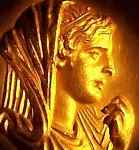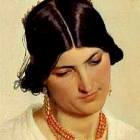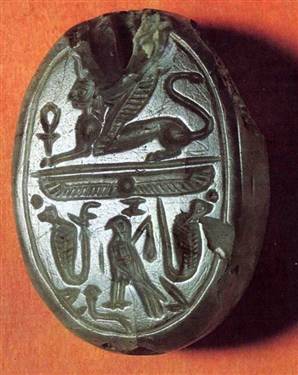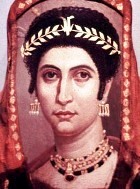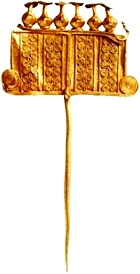Bathsheba: beautiful and shrewd
 Bathsheba was born into an elite warrior family.
Bathsheba was born into an elite warrior family.
As if that was not enough, her grandfather was Ahitophel, said to be the wisest man in King David’s kingdom. Wisdom and courage were in her genes.
Moreover, she was remarkable beautiful.
When Bathsheba reached puberty she married into a family similar to her own. Her husband was Uriah, a high-ranking officer in David’s army.
After the marriage, she lived in Uriah’s family home, which happened to be close to the walls of David’s palace.
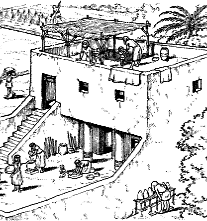
Most houses had shaded rooftop areas where the women gathered
A passionate love affair
One evening she was washing her body after her monthly menstrual cycle – this tells you she wasn’t pregnant at the time.
David, strolling on the palace balcony above, saw her. He was smitten.
He immediately sent for her and had sexual relations with her. Was it rape, or seduction? See Bathsheba’s story.
In any event, she conceived a baby.
Bathsheba’s husband murdered
She told David she was pregnant. He immediately summoned her husband Uriah home from the battle front.
Uriah must have found out what had happened, because he refused to return to his house – i.e. have intercourse with his wife. He was making it impossible to discreetly pass the baby off as his.
Furious, David arranged for Uriah to be killed in battle, then he married Bathsheba.
The baby, a son, died – maybe – then she had another son, Solomon. Remember, this story is all about proving the legitimacy of Solomon’s claim to the throne of Judah – that he really was the son of King David.
Later she bore three more sons. Eventually Solomon became second in line to the throne. If he had been the popular choice of the people, this could mean he would be elected king on David’s death.
But he was not nearly as popular as an older half-brother Adonijah. Bathsheba realized she would have to act if she were to get her own son Solomon onto the throne.
Two rival factions developed, one of them led by Bathsheba. They jockeyed for power. David was now quite old, and eventually became sexually impotent. Today this might be viewed as unfortunate; in ancient times it was a disaster. A sexually impotent man could not rule.
 Adonijah became regent. If and when he became king, Bathsheba knew her son Solomon would be killed – killing rival claimants to the throne was a common practice at the time.
Adonijah became regent. If and when he became king, Bathsheba knew her son Solomon would be killed – killing rival claimants to the throne was a common practice at the time.
Bathsheba gets the crown for Adonijah
But she and Solomon’s faction were not beaten. Adonijah might have the love of the people, but she had the army and the Jahwist priesthood on her side. There was a bloody palace coup, and Bathsheba’s party took over.
Adonijah was accused of treason on a trumped up charge (Bathsheba supplied the evidence!) and then was quickly executed.
Bathsheba, now the mother of the reigning king, became the most powerful woman in the land.
Link to Bathsheba’s story, with Scripture text
Save
Who was Salome?
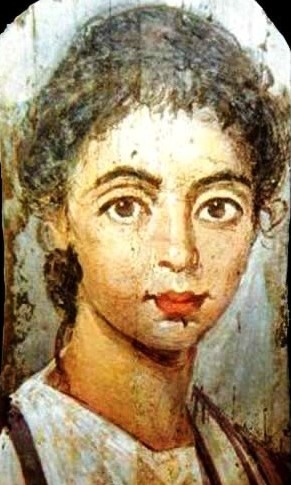 Political life at the top has always been ruthless, and so it was at the time of Christ and John the Baptist. The story of the Princess Salome shows us just how merciless rulers could be when their power was threatened.
Political life at the top has always been ruthless, and so it was at the time of Christ and John the Baptist. The story of the Princess Salome shows us just how merciless rulers could be when their power was threatened.
Salome was the daughter of Herodias by her first husband Philip.
This meant she was born a little princess, and almost certainly brought up in the royal harem where her mother lived (see Life in the royal harem). Power was meat and drink to these people, and they fought to preserve it.
![]() Salome’s status depended to a large extent on her mother’s. If her mother was divorced by her second husband Herod Antipas, Salome’s status would slip. She knew this, and so did everyone else.
Salome’s status depended to a large extent on her mother’s. If her mother was divorced by her second husband Herod Antipas, Salome’s status would slip. She knew this, and so did everyone else.
When John the Baptist attacked the marriage between her mother Herodias and her step-father Herod Antipas, Salome leapt to their defence. Even though she was just a young girl, she was politically astutue enough to know the danger her mother was in. If John the Baptist kept up his outspoken criticism, Herod might have to divorce her mother.
Salome reacted as children do when they experience an assault on their mother: she became fiercely protective. When it 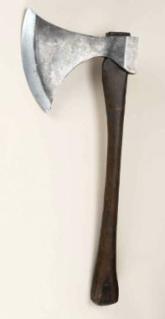 came to the crunch, she was prepared to do anything.
came to the crunch, she was prepared to do anything.
Was it Salome’s idea to dance?
Maybe. But it was more likely that the whole thing was planned beforehand by all three, to get rid of a dangerous political opponent.
In the Gospel account of the execution of John, the Greek word ‘korasion‘ is used about Salome, first when the severed head is given to her, then later when she takes it to Herodias.
The word means ‘a well-born young woman of marriageable age’ and in this context it is an ironic attack on the Jewish royal family.
There was a no-holds-barred war of nerves going on between John’s followers and Salome’s family, even after John was dead.
Link to Rita Hayworth in the Dance of the Seven Veils
Save
Who was Tamar, daughter of David?
 This is a horrible story, and nobody wins.
This is a horrible story, and nobody wins.
Tamar was a royal princess, the daughter of the charismatic, mercurial King David.
Her mother was Maacah, a princess from the neighboring kingdom of Geshur – the forgotten princess.
Maacah had two children, both of them extraordinarily good-looking. The first was Absalom, a favorite of his father’s. The other was her daughter Tamar, whose looks stood out even in this family of beautiful children. But beauty can be a curse…
Amnon obsessed with Tamar
When Tamar reached puberty her half-brother Amnon, David’s eldest son, developed an unnatural obsession. He watched his young half-sister, could not get enough of her presence, and above all wanted to possess her.
But Tamar was a royal princess and a virgin, closely watched by the harem eunuchs. There seemed no way of Amnon getting her alone, let alone into his bedroom.
But Amnon, heir to the throne, was used to getting what he wanted. He and his cousin Jonadab came up with a plan to lure Tamar into Amnon’s room on the pretext that he was ill. Once they were alone Amnon could have what he wanted.
 Amnon took to his bed, feigning illness. David visited him, and Amnon told his father he might be able to eat if his sister Tamar cooked some food and fed it to him.
Amnon took to his bed, feigning illness. David visited him, and Amnon told his father he might be able to eat if his sister Tamar cooked some food and fed it to him.
David fell for it. He sent for Tamar to come and tend her brother.
Tamar raped
Tamar warily obeyed her father. Amnon insisted he would only eat the food if she brought it to him in his room and fed him with her own hand. When she did this, he took hold of her and despite her struggles, raped her.
Once Amnon had finished his brutal business, his feelings for Tamar changed dramatically. He had his servant literally throw her out of the room. He would not even use her name: ‘Put this woman out of my presence, and bolt the door after her’ he said.
David does nothing
David was angry when he heard what had happened, but did nothing to resolve the situation, or even punish Amnon for what he had done – despite pleas from her mother and brother.
Absalom in particular was shattered by his father’s lack of action. He waited, biding his time.
Two years later he gave a feast for all David’s sons and at the height of the festivities when Amnon was half-drunk, Absalom killed his half-brother, stabbing him to death. In the ensuring turmoil Absalom escaped.
But Tamar, no longer a virgin, was unmarriageable. She was condemned to the life of a childless widow.
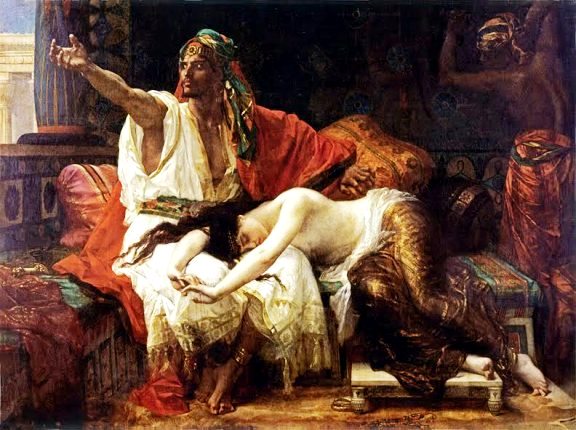
Tamar and her brother Absalom, by Alexandre Cabanel
Save
Who was Maacah II, the beloved?
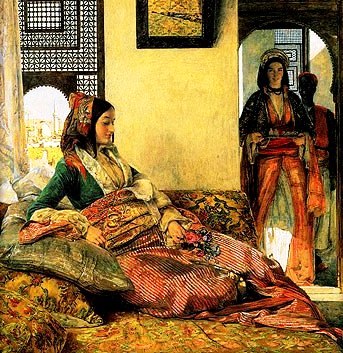
Women in the royal harem, by John Lewis
We’re not even sure whose daughter Maacah was. Perhaps Absalom fathered her on one of his wives, or she may have been the daughter of Absalom’s raped sister Tamar.
After he became king, Solomon married her to his son Rehoboam, and she had at least four sons. The Bible makes a rare statement about their relationship: Maacah’s husband loved her ‘more than any of his other wives’.
Maacah’s husband messes up…
By the time Rehoboam succeeded to the throne he was 41 years old, so she would have been middle-aged, and so would her husband.
Age did not bring wisdom, at least to Rehoboam. Like Edward VIII, he mishandled events in the months after his coronation, relying too much on the facile advice of his friends.
They told him to use an iron hand with his subjects.
He did, and it ended in revolt.
The ten northern tribes of Israel had had enough. They broke away to form their own kingdom, choosing a king they wanted, not Rehoboam. The kingdom of Judah was seriously depleted, now much poorer than the northern kingdom.
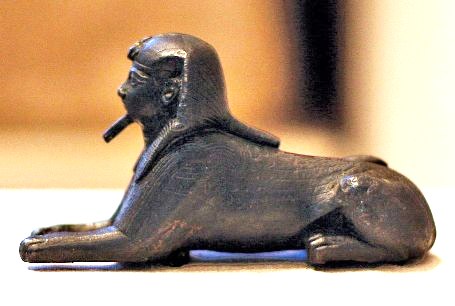
The sphinx of King Sheshonq
Judah invaded by Egypt
Worse was to come. Five years later the Egyptian pharaoh Shishonk invaded Judah, and the treasures of Jerusalem, including the jewelry of Maacah and the other royal woman, was surrendered to the enemy.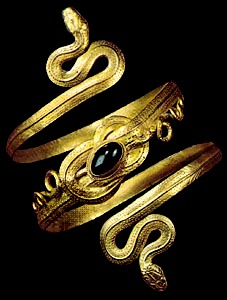
Rehoboam died (his reign lasted from 922-915BC), and Maacah became gebira (Queen Mother, the most powerful position a woman could hold) when her son Abijah became king.
Her triumph was short-lived: Abijah died two years later. His successor was her grand-son Asa, but there was a power struggle between the two, over religion.
Maacah lost the battle. The religious figurines she venerated were smashed and burnt in the Kidron valley outside Jerusalem, and she herself was deposed.
Save
Jezebel: the pleasure of power
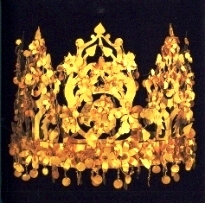 Jezebel was a royal princess, the daughter of Ethbaal, king of Tyre, who had seized the throne in a palace coup and afterwards ruled his small, rich kingdom with absolute power.
Jezebel was a royal princess, the daughter of Ethbaal, king of Tyre, who had seized the throne in a palace coup and afterwards ruled his small, rich kingdom with absolute power.
Watching her father, Jezebel assumed that this was what a king did.
Jezebel’s marriage was arranged when she was still a child. As soon as she was able to bear children she married Ahab (reigned 876-849BC), son of the magnificent King Omri of Israel (see Ahab, Omri, Top 10 Warriors of the Bible).
She moved to Jezreel with a large entourage, servants, priests, officials.
She did not come empty-handed: her dowry may have been the territory of Mount Carmel, rich land in a strategic position. Soon after marrying, she bore a number of sons, so she was successful in the most important task of a royal wife.
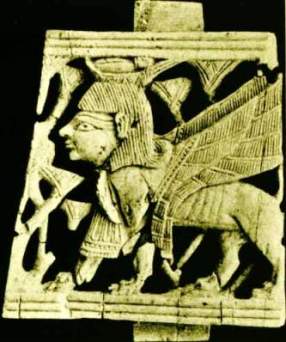
A small piece of an ivory plaque retrieved from the ruined city of Samaria, where Jezebel once lived
Jezebel rules
Ahab was an active and successful military leader, away from his capital much of the time.
During these periods, Jezebel seems to have been regent, with a ruler’s power.
Her father-in-law, the great Omri – see 10 Bible Warriors, had begun building the city of Samaria. She and Ahab continued this project, making Samaria their capital. It contained the fabulous Ivory House, renowned for its luxury and for the carved ivory plaques that covered walls and furniture.
Baal, the spirit of water, was the god to whom Jezebel gave her loyalty. See Worship of Idols in Israel.
Water was, after all, essential for the survival of her subjects, and a large proportion of the population gave their allegiance to this life-giving god.
But there was a new god Yahweh being promoted. He/it was the embodiment of all creation, not just a single manifestation of some aspect of it. See What did Israelites believe?
One of the main converts to this new god was a man called Elijah, who forced the priests of Baal into an open confrontation that resulted in many deaths.
Jezebel was frightened and angry at the subsequent slaughter of the priests, and threatened to kill Elijah. He fled to a neighbouring country.
She then became entangled in a useless quarrel over land. See Part II, Naboth’s vineyard
When she did not immediately get her way, she did what her father would have done: she killed the fellow who dared to cross her. This seemed to her an obvious solution, but it did not go down well, and was used as propaganda by her enemies.
Murder in the palace
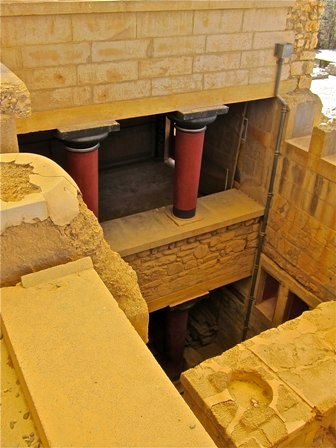
Stairwell in the palace at Knossos; the stairwell in the palace at Samaria was probably similar to this
Ahab was killed in a battle at Ramoth-Gilead, and his son Aziah (and Jezebel’s?) succeeded to the throne.
He did not last long. Somehow, in what must have been a palace coup, Aziah fell from a balcony in a stairwell of the palace and died soon after.
Jezebel’s son Joram became king, but his authority was undermined by one of his soldiers, Jehu, who allied himself with Jezebel’s old enemy Elijah.
In the end, both Joram and Jezebel were murdered by Jehu.
But Jezebel went out with style, dressed in her royal regalia and hurling insults at her murderer as she fell from a palace balcony to her death.
Save
Athaliah, defender of the gods 2 Kings 11
Athalia was the daughter of Ahab, king of the northern kingdom of Israel; her mother may have been the notorious Jezebel. (2 Kings 8:26)
 At an early age, as was the custom for royal princesses, Athalia was sent to the southern kingdom of Judah to marry Crown Prince Joram (often called Jehoram) of Judah.
At an early age, as was the custom for royal princesses, Athalia was sent to the southern kingdom of Judah to marry Crown Prince Joram (often called Jehoram) of Judah.
She had a son to him, Aziah, who eventually became king. This meant that Athalia became a gebira, queen mother, the most powerful position a woman could hold.
Alas, Aziah reigned only one year. He was murdered at the same time, and by the same man Jehu, as his cousin, King Joram of Israel. He was only twenty-two at the time of his death.
It must have been a horrifying time for Athalia. She had expected to rule as gebira for many years.
- Now, within a year, she had lost her husband, her son, and the woman who was possibly her mother.
- In an orgy of violence Jehu murdered Jezebel as well, and the seventy male children of the house of Ahab – he piled the boys’ heads in baskets at the gate of the city of Jezreel for all to see.
- He also slaughtered the forty-two male relatives of Aziah at the pit of Betheked.
It was unlikely Jehu would let Athaliah live.
Athaliah becomes queen of Judah
At this moment of crisis, Athaliah did something unprecedented. She, a woman, took over the throne of Judah, since there were no surviving adult sons of Joram or Aziah.
This had never been done before. She is the only woman who ruled Judah in her own right.
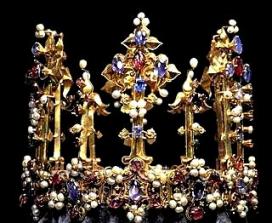 It’s extraordinary that she could do this – but then Athaliah was extraordinary, and they were desperate times.
It’s extraordinary that she could do this – but then Athaliah was extraordinary, and they were desperate times.
Later on, when events were recorded by her enemies, she was accused of murdering all the surviving boy children of her family, including her own grandsons. It is much more likely that they were murdered by the Yahwist Temple party, who were behind the attempted coup in Judah and the successful coup in Israel.
She ruled, and held off her enemies, for about seven years. During that time she seems to have suppressed worship of Yahweh and protected worshippers of the rain god Baal.
 Eventually her enemies got her. Led by Jehoiada, leader of the Yahwist party, they produced a boy child who they said had survived the massacre seven years ago. This boy was supposed to have been preserved by the actions of Athaliah’s sister, Jehosheba, who happened to be married to the Jehoiada.
Eventually her enemies got her. Led by Jehoiada, leader of the Yahwist party, they produced a boy child who they said had survived the massacre seven years ago. This boy was supposed to have been preserved by the actions of Athaliah’s sister, Jehosheba, who happened to be married to the Jehoiada.
- Was the boy an imposter, or one of the royal family?
- Did he deserve the crown?
The Bible, edited by members of the Yahwist party, came down heavily on the side of the young prince. Athaliah was hunted down and finally cornered at the Temple, but then dragged to the Horse Gate of the palace and slaughtered.
The young boy Jehoash (Joash) succeeded to the throne.
Save
Jewish princesses
Search the Site
© Copyright 2006
Elizabeth Fletcher

